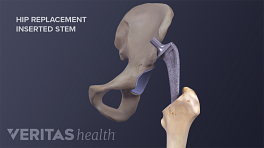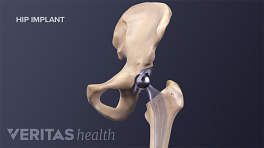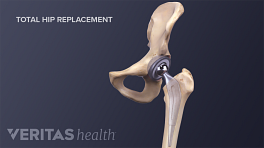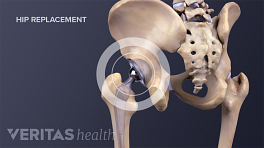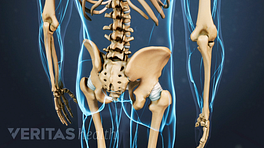There are two major components to treating hip osteoarthritis. The first is taking away the inflammation from the joint to alleviate the pain and the other is to make sure that we address the biomechanics to take the pressure off the hip so that the inflammation doesn’t return.
When the pain from hip osteoarthritis is not responding to more conservative care, to aggressive conservative care, and when that pain is continuing to interfere with a person’s quality of life, it’s certainly appropriate to have a conversation with a hip surgeon about the different surgical alternatives that may be appropriate.
The two general categories of surgery for hip osteoarthritis is one, arthroscopically going in and simply cleaning out the hip, which is a relatively small surgery. And the other is replacing the hip, and going in with a total hip replacement to replace the arthritic parts. Obviously a total hip replacement is a bigger surgery, but it’s definitely worth a really comprehensive conversation with a hip surgeon about these alternatives if the pain is still limiting a person’s quality of life.


